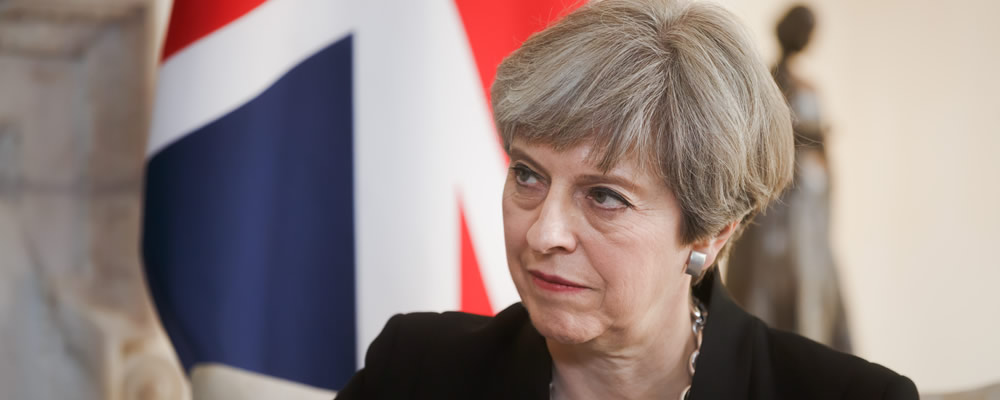- Pound Euro Exchange Recovers to Around 1.14 – Political jitters weigh on recovery
- Bank of England (BoE) Rally Limited – Analysts doubt policy will be tightened any time soon
- GBP Forecast: Brexit Negotiations to Begin – Officials state negotiations will begin on Monday
- EUR Forecast: Eurozone PMIs Ahead – Euro to react to data later in the week
Political concerns will return to the forefront of Pound Euro exchange rate movement next week, as UK and EU officials continue to indicate that Brexit negotiations will still formally begin on Monday the 19th of June.
GBP EUR advanced slightly last week. After hitting a 2017 low of 1.1282 on Monday, the pair recovered later in the week and was able to end the week near the level of 1.14.
Pound’s (GBP) Bank of England (BoE) Rally Softens on Friday
The Pound saw a surge in demand late in the week as the Bank of England (BoE) policy meeting ended with an unexpected split among Monetary Policy Committee (MPC) members.
While UK interest rates were indeed left frozen at their loosest levels on record, it was only by a vote of 5-3. Three policymakers (Kristin Forbes, Michael Saunders and Ian McCafferty) voted for a rate hiked for the first time since 2011.
Analysts speculate the surprising split and dissent among MPC members is the result of Britain’s recent surges in inflation. According to Victoria Clarke from Investec Securities;
‘It seems to be that inflation is the thing for them, and that they’re going to watch and wait on everything else. It’s almost like the 2.9 percent has set off some alarm bells and got them really thinking about their stance.’
Bets of a UK interest rate hike happening before the end of 2018 jumped following the BoE meeting, as investors expect UK inflation will continue to rise and put additional pressure on policymakers. This caused GBP EUR to shoot up on Thursday.
However, the Pound’s rally was short-lived. Analysts urged caution that most BoE policymakers are unlikely to tighten monetary policy while wage growth continues to slow and retail activity falls.
As well as UK economic uncertainty, political uncertainty also persists. The new, weaker UK government is expected to formally begin Brexit negotiations in the coming week which has left Pound investors anxious.
Euro (EUR) Fails to Find Support in Eurozone Data
Last week saw investors selling the Euro from its recent highs in profit-taking after weeks of strong performance from the shared currency.
The week’s data was unable to support the Euro either, as it was either underwhelming or too low-influence to make Euro investment more appealing.
Final Eurozone Consumer Price Index (CPI) results published throughout the week largely met expectations, though France’s May inflation result disappointed.
French inflation was expected to come in at 0.1%, but instead printed at a stagnant 0% month-on-month. The Eurozone’s overall inflation stats for May came in at 1.4% year-on-year and -0.1% month-on-month as projected by preliminary results.
The Euro outlook remains solid overall however, due to improving political stability and recent strong growth stats for the bloc.
Pound Euro Forecast: Brexit Negotiations in Focus
UK and EU officials continue to indicate that formal Brexit negotiations will begin on Monday the 19th of June, despite uncertainties about Britain’s new government.
Monday is said to be the only day of talks in the coming week and Pound investors are sure to react to the success of the proceedings. The EU has indicated it wishes to agree to a ‘divorce bill’ as well as the residence rights of citizens before talks on potential trade deals begin in full.
While Brexit negotiations are expected to begin on Monday, the Queen’s speech marking the start of the new parliament will not be held until Wednesday.
Any shocking developments about the new minority Conservative government or their partnership with the DUP is likely to affect Pound exchange rates, but the Queen’s speech itself is unlikely to have a notable effect.
UK Chancellor Philip Hammond is reportedly hoping to prioritise Britain’s economy in Brexit negotiations and may pressure UK Prime Minister Theresa May into adopting a softer or more pragmatic approach to Brexit. He stated;
‘…it is a negotiation. And as we go into that negotiation, my clear view and I believe the view of the majority of people in Britain is we should prioritise protecting jobs, protecting economic growth and protecting prosperity as we enter those negotiation and taking them forward.’
If the UK government stance on Brexit does soften at all, the Pound will see an increase in demand. However, if Brexit negotiations appear to go poorly or uncertainty rises, GBP EUR will plunge.
Sterling will drive GBP EUR movement for most of the week as investors react to political news and potentially Wednesday’s UK public sector net borrowing data.
Towards the end of the week however, Pound Euro exchange rate investors will be reacting to the Eurozone’s highly anticipated preliminary June PMIs from Markit.



